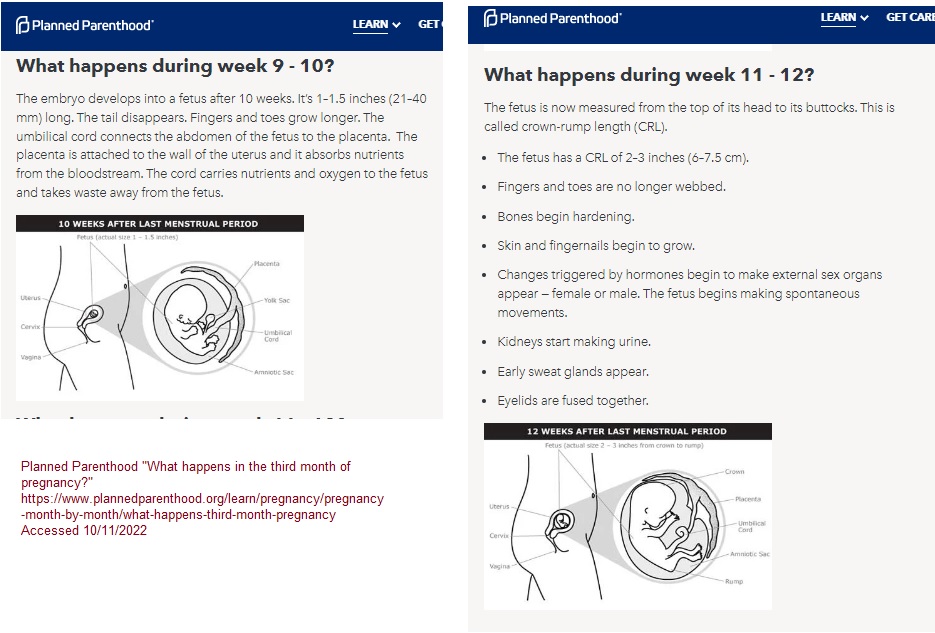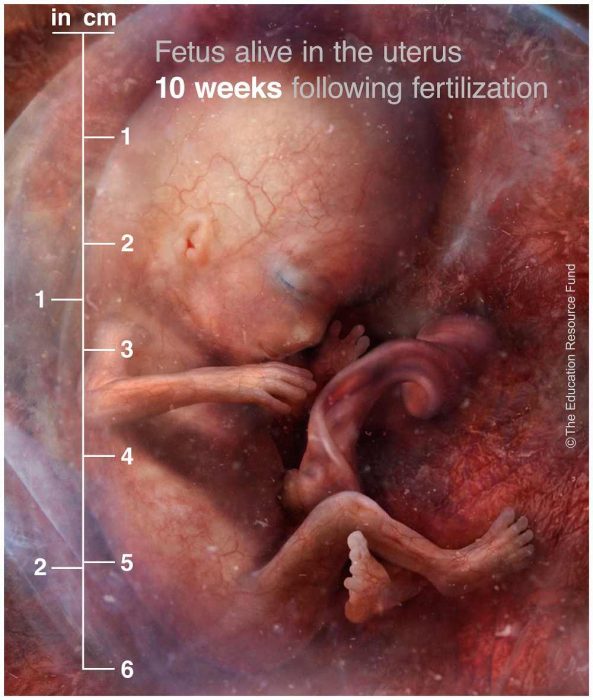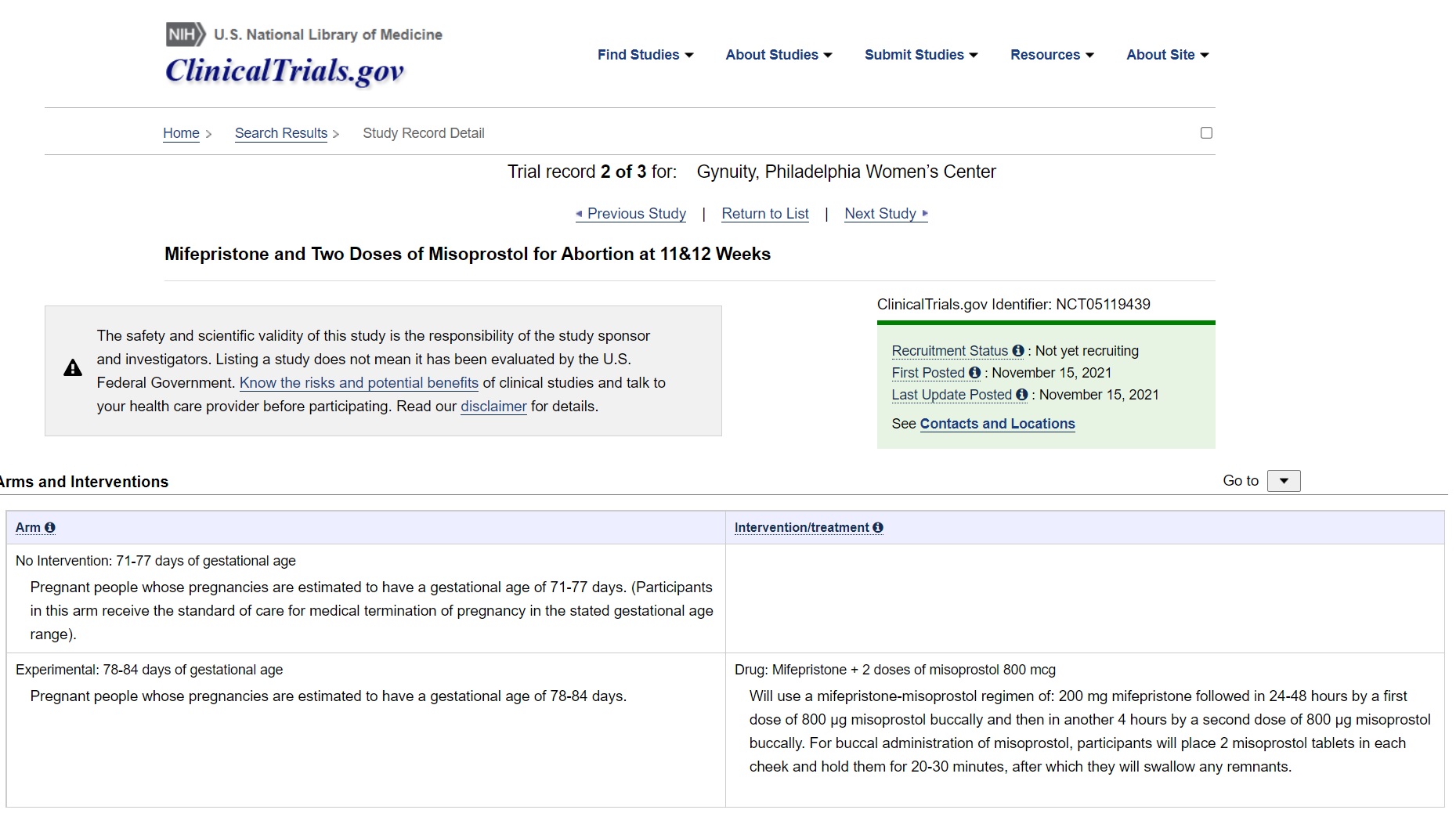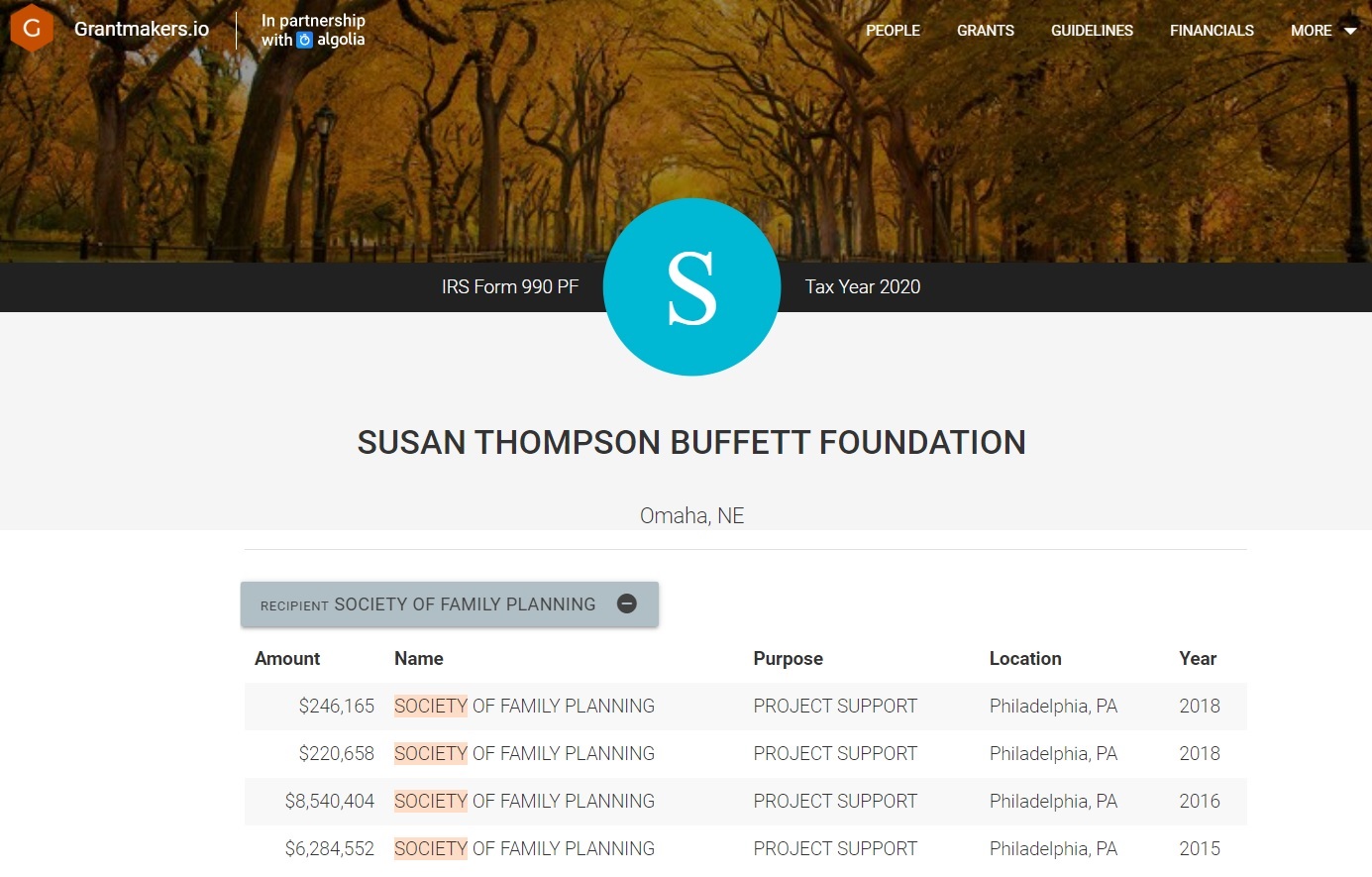Chemically ending the lives of over 500,000 preborn babies yearly with the abortion pill (5 million since its approval in 2000) is a staggering and sobering number — and thanks to pro-abortion groups like Gynuity Health Projects (GHP), this number is likely to increase.
The abortion pill regimen, which consists of mifepristone (RU-486) and misoprostol, is currently only FDA-approved through 70 days (10 weeks) gestation. But, as Live Action News has reported, the industry is already committing abortions well past this timeframe, flouting FDA’s guidelines. Now, Gynuity is testing the abortion pill for Food and Drug Administration (FDA) approval up to 84 days or 12 weeks — a point at which the preborn child’s bones are beginning to calcify (harden), and when studies indicate that the child has the capacity to feel pain.
Even Planned Parenthood admits how developed a baby is at this stage
Women who use abortion pills to end their pregnancies could potentially see the remains of their babies once expelled into a toilet. Between 11 and 12 weeks, the preborn child can play in the womb and her taste buds have matured into discrete tastebuds, according to Live Action’s Baby Olivia website.
Even Planned Parenthood acknowledges that at this point in gestation, “Fingers and toes grow longer. The umbilical cord connects the abdomen of the fetus to the placenta. The placenta is attached to the wall of the uterus and it absorbs nutrients from the bloodstream. The cord carries nutrients and oxygen to the fetus and takes waste away from the fetus.” Planned Parenthood also notes, “Fingers and toes are no longer webbed. Bones begin hardening. Skin and fingernails begin to grow. Changes triggered by hormones begin to make external sex organs appear — female or male. The fetus begins making spontaneous movements. Kidneys start making urine. Early sweat glands appear. Eyelids are fused together.”

Planned Parenthood fetal development 9-10 weeks and 11-12 weeks (accessed 10/11/2022)
Goal of Gynuity abortion pill study is solely to expand the pill’s use later in pregnancy
In an e-mail to supporters, Gynuity wrote that it “has initiated a study to strengthen the evidence for extending the gestational age limit for outpatient medication abortion beyond 70 days of pregnancy—the current limit set by the U.S. Food and Drug Administration. This latest in a trilogy of studies will explore with more rigor an adjustment to the dosing regimen in the later first trimester (11 and 12 weeks of pregnancy).”

10 weeks from fertilization (12 weeks gestation/LMP)
A search at the FDA’s Clinical Trial website reveals that a trial entitled, “An Outpatient Medical Abortion Regimen With Mifepristone and Two Doses of Misoprostol at 71-77 and 78-84 Days of Pregnancy,” has not yet begun to recruit but is shockingly seeking participants ranging anywhere from ages 11 to 55.
The trial seeks to “evaluate the efficacy, side effect profile and acceptability of a medical abortion regimen with mifepristone and two doses of 800 mcg misoprostol buccally at 71-77 and 78-84 days of gestation to further expand the evidence base for the most effective regimens in the late first trimester of pregnancy.”

Gynuity abortion pill clinical trial for use through twelve weeks of pregnancy
According to GHP’s announcement, the trial will take place at the following locations:
- Planned Parenthood Great Northwest, Hawai’i, Alaska, Indiana, Kentucky (PPGNHAIK);
- Philadelphia Women’s Center;
- Planned Parenthood North Central States (PPNCS); and the
- Queen’s Medical Center (Hawaii).
“An additional two clinics—one in Tennessee and the other in Georgia—had to withdraw from the study due to the enforcement of post-Roe abortion bans in their states,” Gynuity also wrote. Those included CHOICES Memphis Center for Reproductive Health as well as the Atlanta Women’s Center.
Previous trials
“This new study builds on our two published studies evaluating the success of combined mifepristone-misoprostol regimens for abortion through the 11th week of pregnancy,” Gynuity wrote in their e-mail.
The first study prospectively assessed the efficacy of a common first trimester outpatient regimen using one dose of mifepristone 200mg and one dose of misoprostol 800mcg. Our findings demonstrated a particularly good chance of abortion success: 92.3% and 86.7% in the 10th and 11th week, respectively. Ongoing pregnancy was 3.6% and 8.7%, respectively. This regimen could be a reasonable option for medication abortion at 11 weeks, but the findings indicated that the significant increase in continuing pregnancies in the later week was cause for concern. [emphasis added].
The second study, a retrospective chart review, compared the regimen effectiveness of outpatient medication abortion at 10- and 11-weeks’ gestation using a second 800mcg dose of misoprostol, four hours after the first one, following a 200mg dose of mifepristone taken up to 48 hours earlier. Findings showed that treatment success was seemingly higher (99.6% and 97.7% in the 10th and 11th weeks, respectively) and ongoing pregnancy was much lower (0.4% and 1.4%, respectively) than what we had observed in the first study. A quarter of clients did not return to the clinic for follow up, making it difficult to draw definitive conclusions about the efficacy of the study regimen. The regimen, however, showed promised and warranted more rigorous investigation.
While GHP is touting the results as good, the reality is that the failure rate of the abortion pill regimen at these later stages is abysmal. Let’s do the math (10-11 weeks) using the data above from the first study in 2020, which showed that over 500,000 (502,286) women used the abortion pill that year:
- The figure of 92.3% means that nearly 8% of women — over 40,000 — could experience an incomplete abortion (GHP claimed 3.6% actually had an ongoing pregnancy).
- The figure of 86.7% means that a whopping 13.3% of women — nearly 67,000 — could experience an incomplete abortion, (GHP claimed 8.47% had an ongoing pregnancy).
While the added dose of misoprostol in the second study showed improvement, the conclusions revealed that “nearly 25% of clients were lost to follow up,” indicating that the .4% to 1.4% ongoing pregnancy results could be skewed. But, even if we were to believe that the figures were accurate, that still translates to 2000-7000+ women suffering incomplete abortions every year.
Who is Gynuity Health Projects (GHP)?
Gynuity’s founder and president Beverly Winikoff will serve as the principal investigator of the upcoming trial. Winikoff serves on the board of the National Abortion Federation (NAF), which is funded by the Buffett and Packard Foundations, organizations which were early investors of abortion pill manufacturer Danco Laboratories. NAF was also at one time directly funded by Danco.
Winikoff previously served on the board of the Society of Family Planning (SFP). The group’s funding arm, the Society of Family Planning Research Fund (SFRF), originally created by the SFP Board in 2011, provided a grant for the clinical trial. Live Action News previously noted that SFP was founded in 2005 with a generous contribution from the Packard Foundation and receives millions from the Buffett Foundation. Over past years, abortion philanthropist and abortion pill investor the Buffett Foundation has poured over $15.3 million into SFP.
The Buffett and Packard Foundations also fund Gynuity, financing studies which are used to convince the public that abortion is safe.

Society of Family Planning (SFP) funded by Danco investor Buffett Foundation per Grantmakers
Winikoff previously worked with the Population Council in the original RU-486 abortion pill trials. In recounting her role in the FDA approval of the drug, Winikoff shockingly credited the 9/11 terrorist attacks with saving the abortion pill by drowning out the news of a woman’s abortion pill death. This response indicates that expanding access to the abortion pill has long been the goal of people like Winikoff.
Will women’s safety again be put on the back burner in favor of increasing abortion access? Time (and trial) will tell.








